After a rough few months and a lack of support and answers from my medical professionals, I decided to run a few health experiments on myself. This article is about what happened during that process.
Introduction
For those of you that follow me on Twitter, you’ll probably be aware of my tweets about how rough I’ve felt the last 3 odd months. For those who aren’t following me on Twitter, I’ve been struggling daily with dizziness, feeling really run down, barely being able to move my muscles, and being unable to do work on my laptop (this is what I call: spinning out; spin out; or spun out). It has been so bad that I’ve spent most of the summer barely being able to do anything.
Over the last year or so I’ve had a battery of tests with different specialists to try and figure out what was going wrong with me.
The battery of tests I had at the balance clinic (Balance Tests Seen Through The Eyes Of My Experience) resulted in my being diagnosed with persistent postural-perceptual dizziness (PPPD). The two tests I had with the endocrinology department (My Experience Of The Short Synacthen Test and 5-hour glucose test) resulted in my being diagnosed with reactive hypoglycemia. And the tests I had with the gastroenterology department (An Account Of The Gastroscopy, Colonoscopy, And Its Preparations) resulted in my being diagnosed with IBS. However, I’m still waiting on the biopsies from those tests
It was these two conditions, PPPD and reactive hypoglycemia, that I thought were causing the sudden increase in severity of my symptoms, starting in the summer. Because I was trying to go back to university to finish my MSc, I knew if this continued, I would have no chance of completing my course.
Thus, I decided to take matters into my own hands and run a few health experiments on myself to get some answers. Sitting around and waiting for the various hospital appointments and admin teams to send the results of said tests, was just taking too long.
Because I have both reactive hypoglycemia and PPPD, I could never really tell what might be at fault or if both were working together to cause me to spin out so frequently.
Thus, during the summer, I joined and reached out to some groups for PPPD and reactive hypoglycemia to see if they could shed some light on my situation. Some of these were turned into health experiments I conducted on myself.
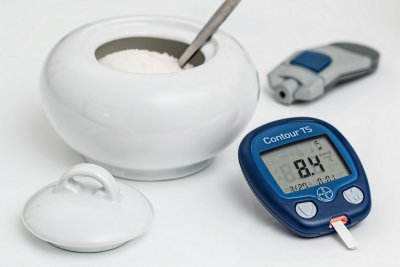
Reactive Hypoglycemia Health Experiments
One of the things that were suggested as a possible cause was drinking sugar-free soft drinks. I’d started drinking sugar-free soft drinks because I was tired of drinking water all the time, and milkshakes had far too much sugar in them. I also started drinking these soft drinks around the time the intensity of my symptoms massively increased.
The reasoning for why sugar-free soft drinks could be the cause is because my body will think it’s getting sugar, triggering my sweet receptors, and thus releasing insulin. This would cause a hypo because the sugar my body thought was coming didn’t come, leaving my body with too much insulin.
So I started to only drink sugar-free soft drinks if I was already eating carbs, so this would stop being a problem. This seemed to help, and thus reinforced the idea that my problems could all be down to my reactive hypoglycemia.
I was also told by my endocrinologist that I should cut out carbs. So I tried doing that, but then I just felt terrible all the time. After that failed to make me feel better, I went back to eating carbs again. The nurse at my 5-hour glucose test also told me I should do (The 5-hour glucose test had to be stopped after 3 hours due to my blood sugar dropping too low and not stabilizing).
Furthermore, I had also noticed that when I felt really rough and spun out in the evenings, but had eaten chicken and chips from the takeaway, I would start to feel better. So this further galvanised me to add carbs back into my diet. However, this was very hit-and-miss with making me feel better.
PPPD Blue Light Health Experiments Part 1
Someone I talked to in one of the PPPD Facebook groups I’d joined made a recommendation. They’d suggested that maybe the reason I would suddenly feel a lot worse and spin out when trying to do work on my laptop could be because of the blue light it admits.
They recommended trying a blue light filter app. At first, I thought didn’t make much logical sense, but I was desperate, so I thought I’d look into doing it (and finding a way to do it for free).
After a quick Google search, I found out that I could turn on the night mode on my windows 10 laptop which would filter the blue light for me. Thus, I turned the night mode on and made it 24/7 on my laptop.
Surprisingly, that evening, I was able to do hours of work on my laptop without my head spinning out. However, I did notice a little eye strain while using my laptop like that.
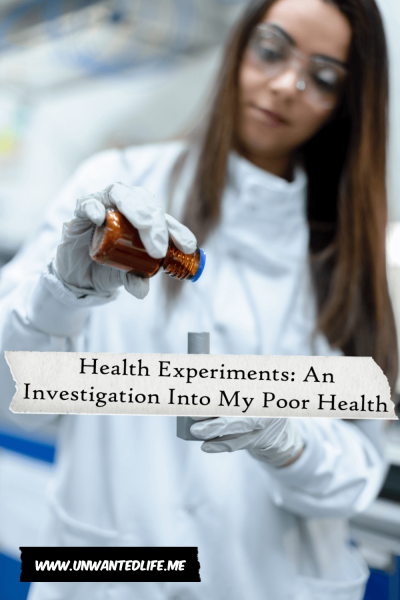
PPPD Blue Light Health Experiments Part 2
The following day I thought I’d try a new test. Normally, when my head spins out when I’m using my laptop, it’d happen pretty much within the first few minutes. Thus, my new test was to wait until I knew I was in a hypo state and then use my laptop with the night mode still engaged, to see what happens.
Surprisingly, again, my head didn’t spin out like it normally would when I try to work on my laptop. But I was extremely hungry. Now for the second part of this test.
For this part of the test, I cooked a small carb and meat snack to improve my hypo state. This allowed me to then try using the laptop again to see if anything would change. Thus, allowing me to see if some of the problems were related to my reactive hypoglycemia or were solely down to my PPPD.
Basically, the small meal is to see how much of my dizziness and muscle weakness is down to my hypo, so I can then figure out how to manage both conditions better.
After eating the snack and waiting a while, I didn’t feel any worse or better, so I think my hypos are the same as they ever were. Which would mean all the debilitating problems must be down to my PPPD. This would explain why using the night mode might be helping me over the last two days, as it’s as my PPPD is easily made worse by visual stimuli.
If the blue light filtering is indeed helping me, then I’ll have to run a test with blue light-blocking glasses at some point, to see if I can benefit from it when doing other activities, like exercising.
Results So Far
I have no idea why it’s working for me because as far as I’m aware blue light is related to your body clock and thus blocking it, at night at least, should only help you sleep. As such, I have no scientific explanation as to why it seems to be helping me. But it costs nothing to change your laptop to its night setting to see if it’ll help you if looking at a computer screen makes your PPPD worse.
Blue light blocking might not help every PPPD sufferer. It certainly didn’t work for the person from the Facebook PPPD group who suggested it. It also didn’t help another member who joined the conversation and said they’d tried wearing blue light-blocking glasses. But for some reason, it seems to be working for me.
If blocking blue light does work, then I’ll be able to use any computer whenever I want without having to worry. This will make returning to work a lot easier, and I can stop worrying about being unable to do anything every time I try to use a computer, due to my entire body going weak and feeling dizzy.
I had been blaming my reactive hypoglycemia for my head spinning out every time I tried to use my laptop. Because all the sensations and symptoms are similar to when I have a really bad hypo, are a little different from my PPPD. However, I also noticed that eating never helped before using my laptop, which pretty much ruled that out as the problem.
If PPPD is the cause, then it explains why I’ve not been getting better even when I eat. Which at first made me wonder if I was eating the wrong things. But even trying different foods didn’t help.
Which, if true, would mean my hypos haven’t gotten worse than they used to be, I’ve just been blaming the wrong condition for the terrible symptoms that have been afflicting me over the last few months.
Furthermore, if my brain can be retrained to improve my PPPD works, or if the medication they’ll try me on if the retraining fails to work, I should be back to the way I was pre-heart issues. This also means I can eat normally and diet without any real issues. That would help with getting my weight under control again.
However, before I get my hopes up, I should carry on with my health experiments for at least a week to see what happens. If the night mode continues to work the rest of the week, then I’ll get myself a pair of blue light-blocking glasses.
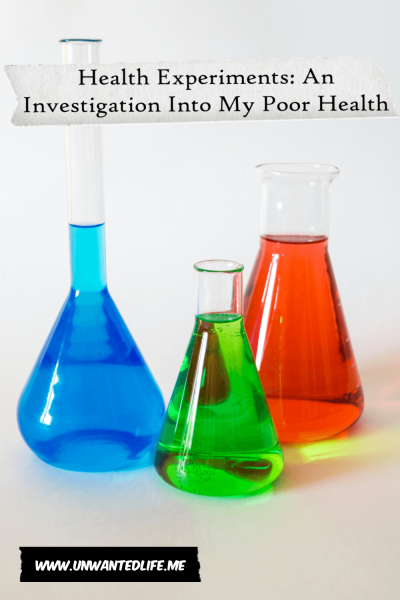
7 Day Experiment
For this, I’ll keep track of the flare-ups of my debilitating symptoms and make a note of the things I did or didn’t do that could have caused them. I’ll also switch between having night mode on and off to see if the first two days of tests were just a fluke.
Day 1
Everything seems to be going well. Still using night mode to block the blue light. I’ve not had my head spin out so badly that I’ve been unable to do anything for hours, sometimes all day. Still feel dizzy, but then I always do, but it’s not so bad that it’s stopping me from doing anything.
Day 2
Had a small carb and meat meal, but after about 10 minutes of working on my laptop, I started to feel really unwell. I don’t know if this is because I’m having a hypo or because of my PPPD, but it’s disappointing that these symptoms have come back after the last few days of feeling good when using my laptop.
It’s not as bad as it has been or can be, but it’s still debilitating.
After another 10 minutes or so, it seems to have stabilised, so I can do some work on my laptop as it hasn’t got as bad as it normally does.
I went out for a couple of pints last night to catch up with a friend, so I wonder if that’s a factor? However, thinking about it, I started to feel really bad before I got to the pub. So maybe the couple of pints I had made no difference.
I wonder if using nicotine e-liquid is a factor. I’ve been using nicotine e-liquid for the last few months to help me stay awake. Before that, I only used to use nicotine-free e-liquid. For day 3, I’ll try only using nicotine-free e-liquid.
When I used to smoke, I couldn’t smoke on an empty stomach because it would make me feel really unwell. So I guess the next part of my test needs to be with nicotine-free e-liquid and using or not using the night mode on my laptop.
The nicotine e-liquid must still interact with my PPPD because it’s when I’m using my laptop that I truly become unable to do anything.
Just switched over to nicotine-free e-liquid and I’m already feeling better, slowly but surely. I don’t know why I didn’t consider this before. I guess I was too focused on the fact that it kept me from having mini blackouts all the time, and allowed me to stay awake. But what can I use instead to stop feeling constantly tired and having mini blackouts? I can’t drink caffeine or use stimulants.
Few hours after switching to nicotine-free e-liquid, no problems using the laptop with the blue filter applied. Tomorrow I’ll try it without the filter.
Day 3
I’ve been able to use my laptop without my head spinning out whilst using the nicotine-free e-liquid. But I’m struggling with staying awake and I’m having mini blackouts again. Sigh.
Day 4
Turned off the blue filter and had a small lunch. Besides feeling so tired that I spent a few hours napping after waking up this morning, I’ve had no other problems today. I’ve been able to use my laptop without issue, even while hungry.
I’ve only had the usual dizziness that I get 24/7, and only a slight increase in symptoms as I got hungrier. Nothing debilitating, and nothing like I have been having.
More support for nicotine e-liquid being the cause of my insufferable symptoms over the last few months.
Day 5
Apart from feeling tired during the day due to being on nicotine-free e-liquid, there have been no issues. Still using my laptop without a blue filter, so it would seem the blue light was never a factor.
Day 6
No issues today with using my laptop. These last few days I’ve felt really good. Been a while since I’ve not felt rough all the time.
Day 7
Still no issues. I’m so relieved that I’ve identified the cause and have improved my quality of life. I couldn’t take living like I was anymore.
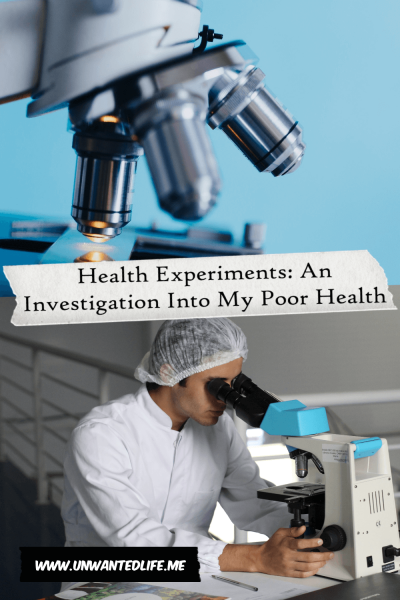
Conclusion
I started off doing these health experiments thinking it was all down to either my reactive hypoglycemia, PPPD, or a combination of the two. I never would have guessed that I’d accidentally find the true cause whilst running my health experiments.
For a while, I thought it was my reactive hypoglycemia that was causing my recent debilitating symptoms because I had been trying to change what I was eating. But that didn’t make any sense, given that at the start of the year I went carb-free (Dieting To Misery: Being Overweight) and didn’t have any problems like I had been having the past few months.
At the time, however, it was the only change that I could think of that lined up with my problems.
My partner thought it was psychosomatic, but I knew that wasn’t the case. Luckily, it dawned on me that it was the nicotine e-liquid I’d been using. It was a good job I did, or I may have never realised the cause.
Over the few months when I’d been feeling really terrible, I thought I had discovered something that made me feel better: eating chicken and chips (carbs and meat). But it turned out that the reason I felt better in the evening after eating chicken and chips wasn’t that I was eating carbs and meat (protein) and thus reversing my hypo. It was because I wasn’t using nicotine e-liquids in the evening. It had just been a coincidence.
Again, when I had tried the night mode to activate the blue light filter, the first time I had done it was in the evening. I had stopped using nicotine e-liquid in the evening, so I had falsely believed it was the blue light filter that had caused the improvements. In reality, it was because I’d switched to nicotine-free e-liquid.
All this because I hadn’t considered the fact that nicotine could be the cause. Who would have guessed something like that was the key variable?
This just goes to show how correlation does not imply causation. It was also a good job I didn’t buy some blue light-blocking glasses after the second phase of my health experiments.
What I first thought was my reactive hypoglycemia, then thought was my PPPD, was, in fact, neither. The culprit for all my recent extreme problems was simply the fact I’d started using nicotine e-liquid to help me stay awake.
I never would have worked this out if I hadn’t decided to run these health experiments on myself to try to figure out what was going on.
I still have both reactive hypoglycemia and PPPD, and using my laptop does make my PPPD slightly worse, but nothing I can’t handle. If I have a hypo, then eventually anything I do slowly gets worse, which includes using a laptop.
But normally I’m fairly asymptomatic with my reactive hypoglycemia until I’m suddenly hit with feelings like I’m going to vomit or pass out. Sometimes I get a warning sign that this coming when I suddenly develop foggy thinking, which I can literally feel happen.
Only the introduction of nicotine e-liquid made it so it was impossible to do anything at all. I don’t know if it was exclusively the nicotine, or how it interacted with my other two conditions, but it clearly is the most important cause of the recent problems I’ve been having.
Tip
If you’ve become unwell, either mentally or physically, it can be useful to keep a record of things that have changed, triggers that might exist, when you eat, sleep, etc. to help you work out what might be a factor.
Doing this little test helped me figure out something that had drastically reduced my quality of life.
Further Research
One last test I would like to do, and that’s to see if I can drink sugar-free drinks without a crash (hypo). A crash I had been assuming was due to drinking something sweet that didn’t have any sugar. But now seems likely that was also due to using nicotine e-liquid.
As always, leave your feedback in the comments section below. Also, feel free to share your experiences about your health and the health experiments you’ve done on yourself in the comments section below as well. If you want to stay up-to-date with my blog, then sign up for my newsletter below. Alternatively, get push notifications for new articles by clicking the red bell icon in the bottom right corner.
Lastly, if you’d like to support my blog, then you can make a donation of any size below as well. Until next time, Unwanted Life readers.

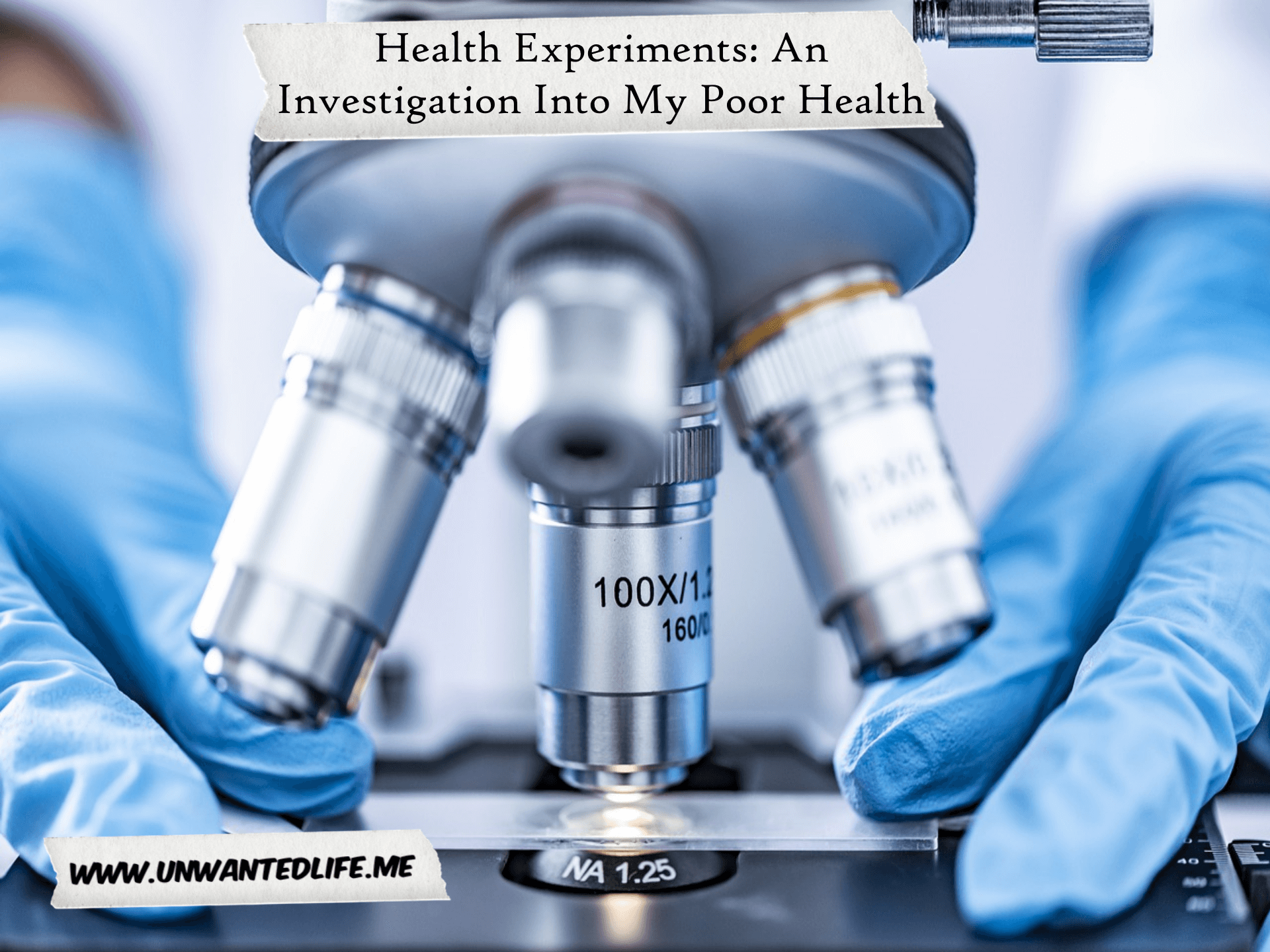
I’ve conducted several experiments of myself in the last few years. It was due to chronic GI issues and nothing was working or making it better. I cut out dairy, gluten and various other foods, until I was eating next to nothing and living on laxatives. Now that I’ve removed myself from a stressful workplace, it’s changes so much.
It’s a good idea to keep a track of changes and try new things before giving up on yourself.
Have your chronic GI issues gone completely since leaving the stressful work environment? IBS can be made worse due to mental health and stress issues, or so I’ve been told by a number of doctors I’ve seen recently
Waiting on the results of medical tests is often the worst part – I know that I really struggle with being patient during that time. Sorry you had to go through all that testing.
The amount of chasing up I have to do using the various hospital PALS teams is super annoying. Still trying to track down results from a test from the start of the year
I admire you for taking things into your own hands but sorry you had to go through all those tests.
Thanks ?
Congrats to you for taking your health into your own hands. we shoudn’t have to but we often do have to.
Some times it’s just quicker to do something’s yourself
I love how health focused you are and am so impressed at the inituative you’ve taken to figure out what is going on with your body. As someone who suffers from a chronic illness I know all to well how easy it is to just sit back and accept what’s happening and let someone else try to figure it out for you – but I also know how frustrating that is.
You’ve given me some interesting ideas to try here. I know we suffer from different things but our symptoms are similar. I’ll definitely be watching my sugar-free drink intake!
I’m glad my series of self tests might also help you with your own health
I’m not sure if you’ve tried it before or if you have a sensitivity to certain smells, but they can be somewhat stimulating. Peppermint for instance is believed to slow the release or cortisol and help people stay awake. Just sniffing it can help make you more alert. I use it to ease headaches and on particularly groggy mornings.
Just smelling it? I’ve not heard about that before, but I’d be interested in reading some scientific journals on the subject
Pure peppermint oil yes. A lot of the studies are on ingestion and uses for IBS but the scent can help increase alertness just sniffing straight out of the bottle. It’s pretty cool having a natural alternative. I carry it with me a lot.